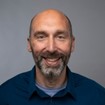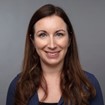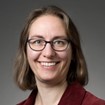
This year, researchers from the department are organizing four sessions at the Digital Tech Summit. Ira, Bas, Eve, and Ken will each chair a session about their current research in the four categories: Foodtech and aggrotech, Cyber security, trust and fintech, Digital talents – skills of tomorrow, and Technological megatrends and emerging technologies. Each session will include a scientific and business perspective on the topic in question. We look forward to the newest on regulatory compliant blockchain systems, the future of hybrid work, eyes as an interface concept, and how digitalization is transforming modern agriculture.
Digital Tech Summit is organized jointly by all eight Danish universities and is part conference, part exhibition, and part networking event with a broad range of keynote-speakers, sessions, debates and events. At Digital Tech Summit research and industry join forces, when over 5,000 decision-makers, CEOs, researchers, companies, engineers, students, start-ups, investors, policymakers and more come together to discuss and share the “what, when, how and why” of the digital technologies and transformations.
Below you can find information about the four sessions organized by Aarhus University. The full program for Digital Tech Summit is available at: https://my.eventbuizz.com/event/digital-tech-summit-2022-10651/detail/programs. It is still possible to register for Digital Tech Summit. Entry for students and start-ups is free, and all employees from the department have received a promo code via to use when booking the ticket.
See you at Digital Tech Summit!

October 25, 11:00-12:15
Organized by: Dept. of Computer Science, Aarhus University and ITU
Track: Cyber security, trust and fintech
Session Chair: Bas Spitters, Associate Professor, AU & Bernardo David, Associate Professor, ITU
The decentralized paradigm of WEB3 and blockchain systems allow for exciting new business models and possibilities. However, it is necessary to make these systems regulatory compliant and robust when handling sensitive private data on customers and business operations. In this section, we bring together speakers from both academia and industry to talk about the latest advances in technology for regulatory compliant blockchain systems with high assurance implementations.
Program
Welcome by by Bernardo David, Associate Professor, ITU
Scientific Talk: “Pitfalls in Automated Market Makers and how to solve them via Privacy", Bernardo David, Associate Professor, ITU
Scientific Talk: "Smart contracts and high-assurance cryptographic software", Bas Spitters, Associate Professor, AU
Business Talk: "Concordium: The public, permissionless, layer-1 blockchain based on science for regulatory compliance", Kåre Kjelstrøm, Group CTO & CPO, Concordium
Business Talk: "Partisia Blockchain - a WEB3 infrastructure with decentralised control of ownership and data", Kurt Nielsen, President and Co-founder, Partisia

October 26, 10:00-15:25
Organized by: Dept. of Computer Science, Aarhus University and DIREC
Track: Digital talents - skills of tomorrow
Session Chair: Eve Hoggan, Associate Professor, Department of Computer Science, Aarhus University
The recent COVID-19 pandemic, and the attendant lockdown, have demonstrated the potential benefits and possibilities of remote work practices, as well as the glaring deficiencies such practices bring. Zoom fatigue, resulting from high cognitive loads and intense amounts of eye contact, is just the tip of an uncomfortable iceberg where the problem of embodied presence remains a stubborn limitation. Remote and hybrid work will certainly be part of the future of most work practices, but what should these future work practices look like? Should we merely attempt to fix what we already have or can we be bolder and speculate different kinds of workplace futures?
The session will focus on real world examples and demos from research and businesses addressing how current digital technologies struggle to mediate the intricacies of collaborative work of many kinds, including aspects of embodied co-presence that are almost impossible to achieve digitally.
Program
Introduction: Eve Hoggan, Associate Professor, Department of Computer Science, Aarhus University
Business Talk: 'Digital and Remote Teaching', Claus Riekehr Møller, CEO, Cadpeople
Scientific Talk: 'Blended Realities for Flexible Hybrid Collaboration', Jens-Emil Grønbæk, postdoctoral researcher, Aarhus University
Business Talk: 'Rethinking the room experience', Raphaël Briner, CEO, Visible
Scientific Talk: 'An Introduction to the ReWork: Futures of Work Project', Nina Boulus-Rødje, Associate Professor, Roskilde University
Panel: 'What is the Future of Hybrid Work?', Moderator: Eve Hoggan, Associate Professor, Department of Computer Science, Aarhus University

October 26, 14:00-15:15
Organized by: Dept. of Computer Science, Aarhus University
Track: Foodtech and aggrotech
Session chair: Ken Pfeuffer, assistant professor, Department of Computer Science, Aarhus University
Eye gaze, i.e., where we look at, receives increasing attention in human-computer interfaces to indicate interest and adapt content to it. This session explores the opportunities and challenges for our eyes as an interface concept. This involves questions such as: What’s the use, what do future interfaces look like, what are problems to be solved, and what are the involved challenges on the way?
Program
Scientific Talk: Joshua Newn, Postdoctoral Researcher, Lancaster University, UK
Scientific Talk: Fiona Bríd Mulvey, Senior Researcher, DTU
Scientific Talk: Teresa Hirzle, Postdoctoral Researcher, University of Copenhagen
Business Talk: Janus Askø Madsen, CEO and CO-Founder, EyeJustRead

October 26, 14:10-15:25, main stage
Organized by: Dept. of Computer Science, Aarhus University
Track: Foodtech and aggrotech
Session chair: Ira Assent, professor, Department of Computer Science, Aarhus University
Digitalization is greatly transforming modern agriculture. Recent artificial intelligence and data analysis techniques open for new tools and services for managing and optimizing in precision agriculture. This gives rise to novel digital business strategies and models. In this session, experts from research and industry present and discuss state of the art technology and share experiences.
The session will focus on examples of how artificial intelligence techniques can be used to support assessment of agriculture crops making use of satellite, drone, and other data sources. Examples include methods that are already used in practice, as well as cutting edge solutions under development in research institutions.
Program
Welcoming by facilitator Ira Assent, Professor, Department of Computer Science, Aarhus University
Business Talk: “Deep Learning for Large-Scale Crop Type Classification using Satellite Images”, Joachim Nyborg, Machine learning specialist, FieldSense
Business Talk: “Novel techniques for assessing crop water stress and soil moisture”, Rasmus Eskerod Borgstrøm, Vice president, Innovation lab, DHI
Scientific Talk: Sune Darkner, Associate Professor, Department of Computer Science, University of Copenhagen
Scientific Talk: “Intelligent Drones for Autonomous Operations: Design and Challenges”, Emad Samuel Malki Ebeid, Associate Professor, University of Southern Denmark